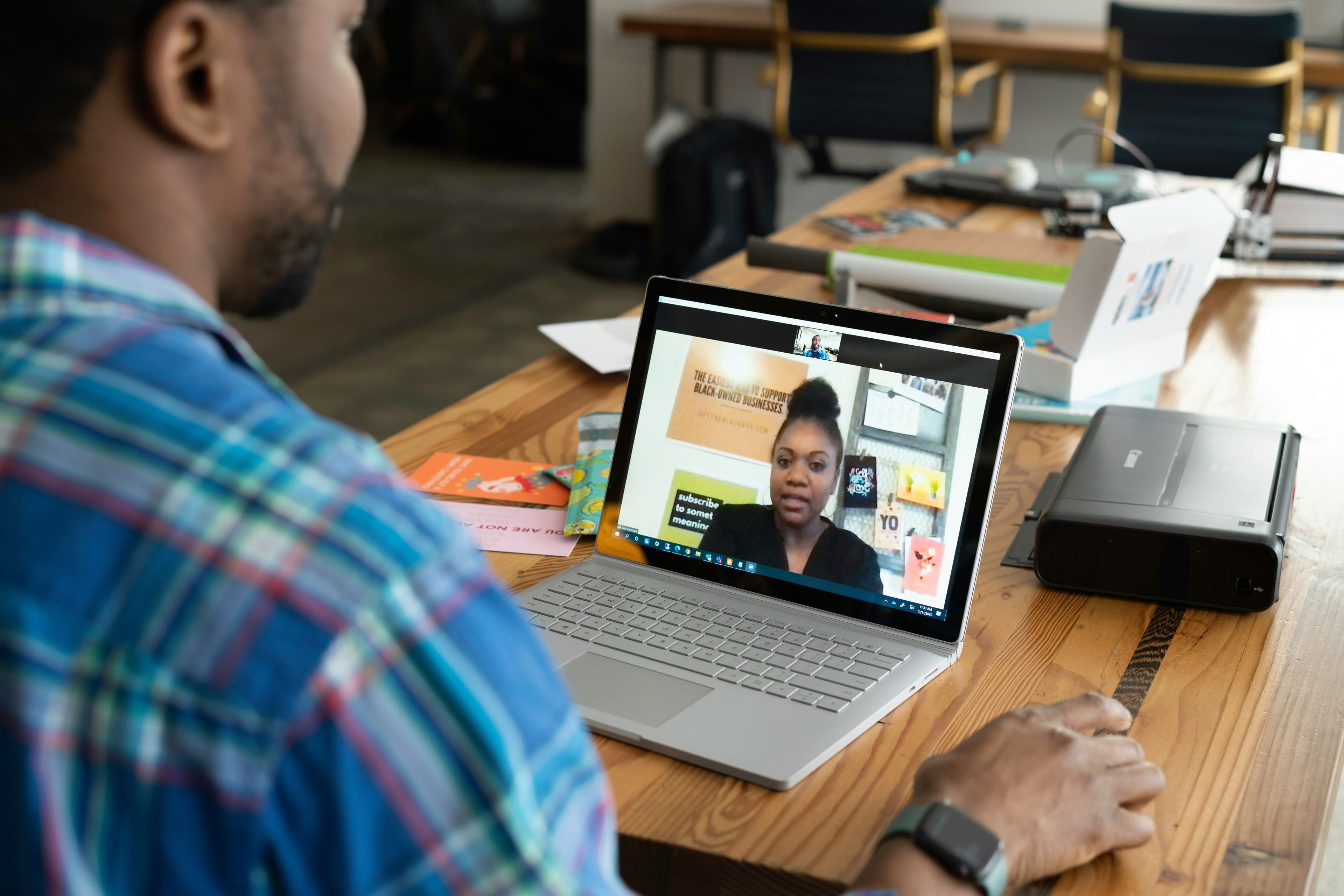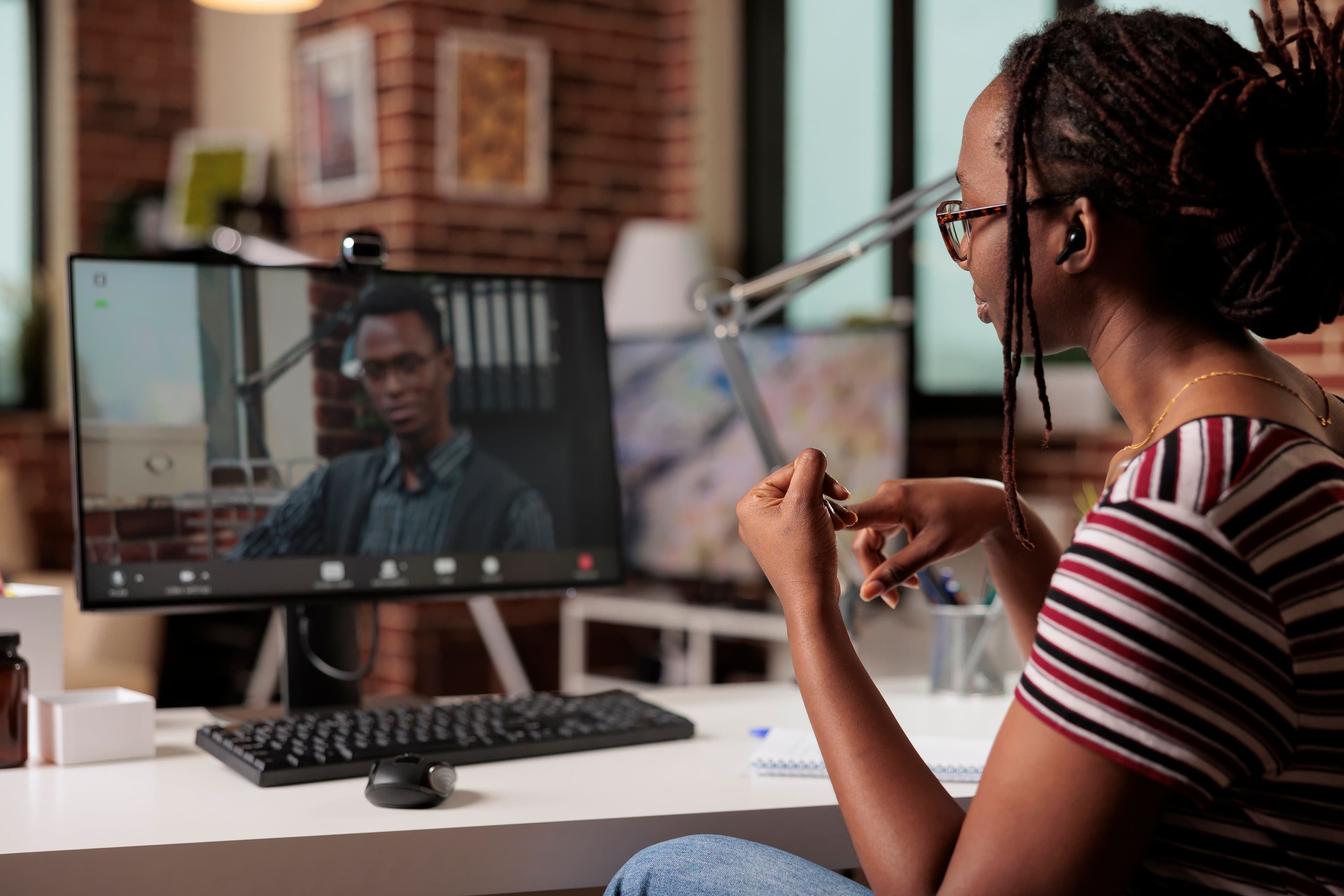Remote Interview Tips for Hiring Independent Contractors
Master the art of remote interviews with key strategies to attract and hire top independent contractors. Discover best practices to build your remote team with vetted professionals from Tammwe.

Remote Interview Tips for Hiring Independent Contractors
As the future of work continues to shift towards remote operations, mastering the art of the remote interview has become a new norm for HR leaders and hiring managers. In a world where talent knows no borders, companies must adapt their hiring practices to tap into a global talent pool. This new era of recruitment requires more than just assessing a candidate’s skills and qualifications; it demands a keen understanding of how to gauge a candidate’s suitability for remote work and cultural fit within the organisation.
This comprehensive guide provides key strategies to help your organisation conduct effective remote interviews, ensuring that you attract, evaluate, and secure top-tier independent contractors in an increasingly competitive and decentralised job market.
Strategy 1: Choose the Right Technology
In today’s digital age, the technology you choose serves as the backbone of a successful remote interview. The right platform can make the difference between a smooth, productive conversation and a frustrating experience plagued by technical glitches. Popular video conferencing solutions like Google Meet, Zoom, and Microsoft Teams offer a range of features that can enhance the interview process, such as screen sharing, recording capabilities, and virtual backgrounds.
However, the choice of platform is just the beginning. It’s equally important to ensure a stable and high-speed internet connection and a reliable device to facilitate seamless communication. By investing in reliable technology, you not only streamline the remote interview process but also send a message to prospective candidates about your company’s commitment to quality and efficiency. Remember, the first impression goes both ways and demonstrating that your organisation values a professional, well-supported environment is crucial.
Strategy 2: Set a Clear Agenda
Clear communication is the cornerstone of any successful remote interview. Before the interview, send candidates a detailed email outlining the agenda, including the date, time, and platform for the interview. Specify who they will be meeting with and the estimated duration of the interview. This level of transparency helps candidates prepare effectively and reduces pre-interview anxiety.
A well-structured agenda also sets the stage for a focused and efficient conversation, allowing both parties to make the most of the time allocated. Setting a clear agenda not only demonstrates your company’s organisational skills but also reinforces your respect for candidates’ time—a critical factor in a competitive talent market.
Strategy 3: Craft Targeted Interview Questions

The questions you ask during a remote interview serve as the lens through which you evaluate a candidate’s suitability for the role and your organisation. Crafting a set of targeted questions is essential for assessing both technical skills and cultural fit. Consider incorporating questions that delve into a candidate’s past experiences, problem-solving abilities, and adaptability to remote work environments.
For instance, you might ask, “Can you describe a time when you had to manage a project with a remote team? What challenges did you face, and how did you overcome them?” Thoughtful questioning not only provides valuable insights into a candidate’s qualifications but also signals your company’s thorough approach to the hiring process.
Strategy 4: Build a Virtual Connection
Building a genuine connection with candidates in a remote setting can be challenging, but it’s no less important than in face-to-face interviews. Establishing rapport begins with a warm introduction and some light small talk to set a comfortable tone. Throughout the interview, show active listening by nodding, smiling, and giving verbal affirmations. This fosters a sense of trust and encourages candidates to open up, giving you a more accurate gauge of their personality and fit for your team.
Creating a positive, human connection in a virtual space also reflects well on your company’s culture, making it more likely that top candidates will be excited about the prospect of joining your team.
Strategy 5: Maintain a Professional Environment
The setting of your remote interview speaks volumes about your company’s professionalism. Choose a quiet, well-lit space free from distractions to conduct the interview. Both interviewers and candidates should mute all notifications and close irrelevant tabs or applications. This focused environment allows for a more productive dialogue and demonstrates your respect for the candidate’s time, reinforcing your company’s commitment to professionalism.
Remember, professionalism is not just about the questions you ask; it’s about the entire atmosphere you create during the interview process.
Strategy 6: Assess Remote Work Competencies
Remote roles come with their own set of challenges and requirements, making it vital to assess a candidate’s aptitude for remote work specifically. Please pay attention to their communication style, time management skills, and comfort level with digital tools. Candidates who demonstrate a high degree of self-motivation, resourcefulness, and technological savvy are more likely to excel in remote settings, making them valuable additions to your team.
Consider asking candidates to provide examples of how they have successfully managed their time or utilised technology to overcome obstacles in previous remote roles. This will give you a clearer picture of their ability to thrive in a remote work environment.
Strategy 7: Use Behavioral and Situational Questions
To gain deeper insights into a candidate’s capabilities, incorporate behavioural and situational questions into your interview. These questions require candidates to draw upon past experiences or hypothetical scenarios, offering you a window into their problem-solving and decision-making skills.
For example, you might ask, “Tell me about a time when you had to handle a difficult client or team member remotely. How did you manage the situation?” This approach allows you to assess not just what a candidate knows but how they apply that knowledge in real-world situations—crucial for roles that require independence and adaptability.
Strategy 8: Be Mindful of Non-Verbal Cues
Non-verbal communication plays a significant role in any interview, even a remote one. Pay close attention to a candidate’s body language, eye contact, and facial expressions. These cues can provide additional context to their verbal responses and give you a more holistic view of their interpersonal skills.
Similarly, be aware of your non-verbal signals, such as maintaining eye contact and nodding, to convey your engagement and interest in the conversation. This mutual awareness helps to bridge the physical distance of a remote interview, creating a more connected and effective dialogue.
Strategy 9: Encourage Two-Way Dialogue
An interview should be a two-way street, offering candidates the opportunity to ask their questions about the role, team, and company culture. Allocate time for this at the end of the interview and answer their queries honestly and transparently. This not only helps the candidate assess their fit with your organisation but also gives you additional insights into what they value in a job, aiding in your evaluation process.
Encouraging two-way dialogue also helps to establish a rapport and ensures that the candidate feels respected and valued throughout the interview process.
Strategy 10: Offer Scheduling Flexibility
The global nature of remote work often means dealing with multiple time zones. Show consideration for this by offering flexible scheduling options for the interview. Whether it’s providing multiple time slots or being willing to conduct interviews outside of regular business hours, your flexibility can make a significant difference in attracting top talent from around the world.
Flexibility in scheduling not only accommodates the candidate’s needs but also signals your company’s adaptability—qualities that are increasingly important in today’s workforce.
Strategy 11: Take Notes & Record Interviews
Documentation is key to retaining important details from each interview. Take notes to capture your impressions, key responses, and any red flags that may arise during the conversation. If possible, and with the candidate’s permission, record the interview for future reference.
Having a record of the interview allows you to revisit the discussion for a more thorough evaluation. It ensures that you don’t overlook any critical details when making your hiring decision.
Strategy 12: Recognise Red Flags
While the primary focus of an interview is to assess a candidate’s suitability, it’s equally important to be vigilant about potential red flags. These could range from inconsistencies in their responses to a lack of professionalism, such as inappropriate attire or background during the video call.
Being alert to these warning signs can save your company from costly hiring mistakes and ensure that you select candidates who are genuinely a good fit for your organisation.
This collective approach to hiring not only improves the quality of your decisions but also fosters a sense of ownership and commitment among existing team members.
Final Thoughts: The Benefits of Successful Remote Interviews
The benefits of successful remote interviews extend beyond simply filling a vacant position. By conducting effective virtual interviews, companies can build a strong remote team that brings together diverse talents, perspectives, and experiences from across the globe. This dynamic workforce fosters a culture of innovation, creativity, and collaboration, fueling business growth and opening doors to new opportunities.
By leveraging global talent, companies can tap into a vast pool of expertise that may not be available locally, creating a competitive advantage in today’s fast-paced business landscape.
As remote work continues to redefine the future of work, businesses that embrace modern talent acquisition strategies are better positioned to thrive in this new era. With AI-enhanced tools and cloud-based solutions, the hiring process has become more agile and data-driven, allowing companies to extend their runway, reduce long-term costs, and scale rapidly to meet market demands.
Elevate Your Team with Africa’s Best Freelancers – Partner with Tammwe Today!
The ability to conduct successful remote interviews is a valuable skill in today’s evolving business landscape. As remote work continues to gain momentum, businesses that refine their remote interviewing strategies are better positioned to attract top talent and foster a productive, cohesive team.
If you’re looking to streamline your hiring process and connect with highly skilled, vetted professionals from Africa, Tammwe is your go-to platform. With a diverse pool of experienced independent contractors, Tammwe makes it easy to find the right talent for your business needs.
Visit Tammwe today to discover how you can elevate your remote workforce with the best freelancers from across Africa. Start your journey towards building a stronger, more efficient team now.
0 comments
newest


